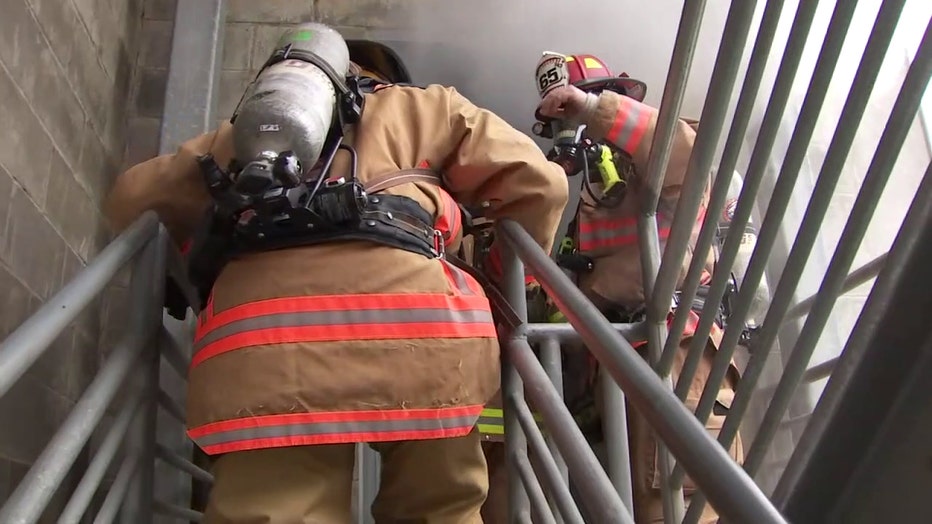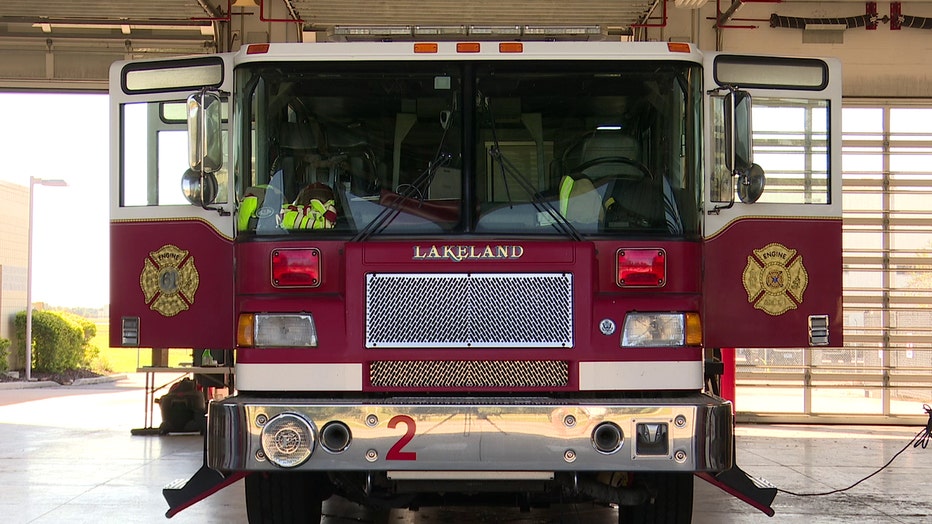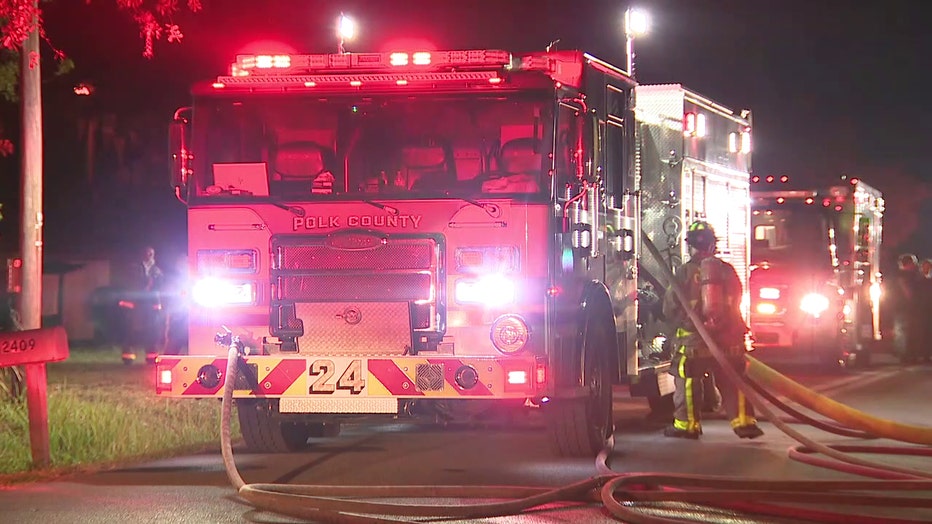Lakeland fire chief turns down labor union's request for radio repeaters in vehicles
LAKELAND, Fla. - The Lakeland firefighter labor union is pushing for new equipment that they said is vital for the health and safety of firefighters and the public.
City officials – including Lakeland's fire chief – shot down the request, saying state funding for the equipment isn't necessary right now.

In early September, The Lakeland Professional Firefighters Local 4173 requested approval from the city for state funding for 10 in-vehicle radio repeaters. The repeaters amplify radio signals in commercial buildings where there's poor signal strength.
READ: Man arrested in Lakeland after trying to fake Polk County deputies out with dry erase board message
The union referred to an incident on August 28 where the lack of equipment negatively impacted firefighters trying to respond to a medical call at a large commercial warehouse. The firefighters were split-up, and could not communicate during the incident.

Shannon Turbeville, the union's president, said Florida Fire Prevention Code requires if the building doesn't install a communication enhancement system, alternatively there can be repeaters inside fire engines.
"It would be much safer, because you're not putting this equipment in a potentially compromised building, and number two, we understand it's more economical to outfit the fire apparatus than it would these buildings. Therefore, saving taxpayers a lot of money," said Turbeville.
On September 14, in an emailed response to the union's initial request, city officials denied it, stating they believe a portable repeater which is currently in-use, and two in-vehicle repeaters, one for each of the Battalion Chiefs' vehicles, are sufficient.
MORE: Polk County parent pleads for additional safety measures in school zone

The city stated that the first in-vehicle repeater was ordered, and the second will be ordered in the new fiscal year.
In a statement, Lakeland Fire Chief Doug Riley wrote in part:
"Adding repeaters to every emergency response vehicle may have potential benefits. However, the repeaters are not a fix-all solution and do not guarantee adequate radio coverage in every building. This would not be the most efficient, economical, or timely approach to the issue, as it would likely take more than a year to purchase, deliver, and install the units."
Relying on two Battalion Chiefs for seven fire stations isn't an effective solution, according to Turbeville.
"When the firefighters enter the building, the repeater may or may not be on the scene, so they're going to be in there and not have a radio communication to call in a mayday or needed drugs for a patient they're dealing with," Turbeville said.
Each repeater, including installation, would cost between $20,000 to $30,000 or between $200,000 to $300,000 for all 10.
"We're hoping the city reevaluates the decision and implements an effective plan that will provide adequate safety for the firefighters and the public," said Turbeville.
In a statement, Lakeland Fire Chief Doug Riley wrote:
"The safety of the public and our firefighters is always our top priority. Any suggestion by the local firefighters’ union to the contrary is baseless and without merit.
At issue is the use of equipment known as digital vehicle repeater (DVR). This equipment boosts the strength of radio signals in buildings with weak signal strength. The City of Lakeland’s Fire Department has had one mobile repeater on hand since 2021 and has two additional in-vehicle repeaters ordered. Once delivered, these two in-vehicle repeaters will be installed in the Battalion Chief vehicles, while the mobile repeater will be used as a spare and as an additional resource. The repeaters are intended to supplement our communication system by enhancing radio coverage for emergency personnel and not to replace additional systems that may be required in buildings, per state or local codes.
Lakeland Fire personnel have been advised to report any deficiencies they experience with radio communications while in the field. We received nearly 28,000 calls for service in 2022, and, to the best of my knowledge, none of our personnel reported any difficulties with their radios while communicating from any business or building.
The incident reported in the email to the City Manager on September 3, 2023, from Mr. Turbeville, from IAFF (International Association of Fire Fighters) Local 4173, was the first I heard of this issue. Public and firefighter safety was not in any way compromised.
If any report of radio deficiencies is received, we immediately send an inspector to evaluate the building. Based on the evaluation, we provide a list of deficiencies and recommend a course of action, such as testing, deploying a repeater, or requiring a radio signal strength system. If we identify any buildings or addresses where a repeater is needed, we flag that location in the CAD (computer-aided dispatch). This result requires a Battalion Chief or Rescue Captain, with a repeater, to respond to all emergencies at any flagged address.
The Lakeland Fire Department has evaluated approaches to overcome radio signal weaknesses. I have, personally, reached out to colleagues in the fire service profession who have been very involved in the related legislative process, particularly the State’s radio signal strength bill, to research and evaluate best practices. I also had conversations with other fire chiefs to share lessons learned and obtain useful advice on the best strategy to address the issue.
Adding repeaters to every emergency response vehicle may have potential benefits. However, the repeaters are not a fix-all solution and do not guarantee adequate radio coverage in every building. This would not be the most efficient, economical, or timely approach to the issue, as it would likely take more than a year to purchase, deliver, and install the units. For these reasons, I do not support adding additional repeaters but do support using these existing assets in the appropriate manner to supplement our overall plan.
We are in the process of modifying our current practice to eliminate utilizing in-vehicle repeaters to perform follow-up tests when the initial test fails. If the initial test fails, the building owner will be required to have an independent contractor perform a radio signal strength test and follow recommendations including installing a radio signal enhancement system, per state code. The updated procedure will continue to follow the applicable fire codes/legislation.
We believe that the three repeaters are adequate to ensure public and firefighter safety, however, we will continue to evaluate coverage and best practices to determine if additional repeaters are needed. At this time, it is premature to request state appropriations for any additional repeaters."


